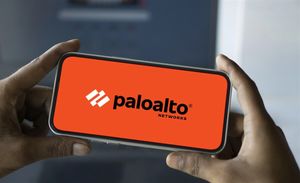India and South Korea Forge Strategic Alliance in Electronics, EV Components, and Digital Supply Chains

Gqeberha, South Africa – October 10, 2025 – In a landmark development set to reshape global industrial landscapes, India and South Korea today announced their commitment to exploring extensive joint initiatives across the crucial sectors of electronics, electric vehicle (EV) components, and digital supply chains. This strategic agreement, formalized during bilateral discussions on the sidelines of the G20 Trade and Investment Ministers' Meeting (TIMM) in Gqeberha, South Africa, signals a powerful new chapter in economic cooperation between the two Asian powerhouses.
The accord is poised to significantly bolster India's ambitious "Make in India" initiative, particularly in high-tech manufacturing, and offers South Korea expanded market access and diversified supply chain opportunities. The collaboration aims to foster innovation, enhance manufacturing capabilities, and build more resilient global supply networks, addressing contemporary challenges in trade and technology.
A New Era of Indo-Korean Industrial Synergy
The pivotal discussions involved India's Minister of State for Commerce and Industry, Jitin Prasada, and his Korean counterpart, Yeo Han-Koo. The ministers underscored a shared vision for deepening economic partnership, identifying manufacturing, digital technologies, and clean technologies as core pillars of future collaboration. Specifically, the agreement outlines a concerted effort to investigate joint ventures and partnerships focused on strengthening the electronics value chain, advancing the burgeoning electric vehicle sector through component manufacturing, and establishing trusted and secure digital supply chains.
This agreement doesn't emerge in a vacuum. It builds upon a foundation of growing bilateral trade and investment, with both nations recognizing the strategic imperative to diversify economic partnerships and enhance supply chain resilience in an increasingly volatile global economy. The timeline leading to this moment has seen consistent high-level dialogues emphasizing technological cooperation and investment facilitation. While immediate market reactions are still nascent, given the recency of the announcement, industry analysts are keenly watching for specifics, anticipating a positive reception for sectors poised to benefit from enhanced collaboration and investment. The move is particularly significant as nations globally seek to de-risk supply chains and foster domestic manufacturing capabilities, making technologically advanced partners like South Korea invaluable to India's aspirations.
Potential Winners and Losers in the New Alliance
The newly forged alliance between India and South Korea is expected to create significant ripples across various industries, creating clear winners and potentially challenging existing market dynamics for others.
In the electronics sector, Indian manufacturers like Dixon Technologies (NSE: DIXON) and Amber Enterprises India (NSE: AMBER) could see substantial benefits. These companies, already major players in contract manufacturing for consumer electronics and components, stand to gain from technology transfer, increased foreign direct investment (FDI), and expanded production capacities facilitated by Korean expertise. Korean giants such as Samsung Electronics (KRX: 005930) and LG Electronics (KRX: 066570), already with a strong presence in India, could further consolidate their market leadership by localizing more of their supply chains and leveraging India's growing manufacturing ecosystem. This could lead to more competitive pricing and a broader range of products for Indian consumers.
The EV components sector is another area ripe for transformation. Indian auto component makers, including Motherson Sumi Systems (NSE: MOTHERSON) and Sona Comstar (NSE: SONACOMS), could benefit immensely from partnerships with Korean EV component specialists like LG Chem (KRX: 051910) (a major battery manufacturer) and Hyundai Mobis (KRX: 012330) (a leading automotive parts supplier). Such collaborations could accelerate India's transition to electric mobility by localizing critical component manufacturing, reducing import dependency, and fostering indigenous R&D. Companies heavily reliant on traditional internal combustion engine (ICE) components, or those unable to adapt to EV manufacturing, might face increased competitive pressure and a need for rapid strategic pivots.
Furthermore, the focus on digital supply chains presents opportunities for technology and logistics firms. Indian IT services companies and logistics providers could find new avenues for collaboration in developing secure and efficient digital platforms for managing cross-border supply chains. Conversely, companies that have historically benefited from less transparent or less diversified supply chains might find their business models challenged as both nations prioritize resilience and trust. The overall impact is likely to be a boost for innovation and manufacturing efficiency, but it will necessitate adaptability from all market participants.
Broader Implications and Industry Shifts
This Indo-Korean collaboration is not merely a bilateral agreement; it represents a significant move within broader industry trends emphasizing supply chain diversification, technological self-reliance, and the global push towards green technologies. In a post-pandemic world, the fragility of concentrated supply chains has become starkly evident, prompting nations to seek more robust and geographically dispersed manufacturing hubs. India, with its vast consumer market, skilled workforce, and government incentives, is strategically positioned to become a critical node in this reconfigured global supply network. South Korea, a global leader in advanced manufacturing and technology, finds a crucial partner in India to expand its market reach and de-risk its own supply dependencies.
The potential ripple effects on competitors and partners are substantial. Other Asian manufacturing powerhouses, particularly those with significant stakes in electronics and automotive sectors, might view this alliance as a competitive challenge, potentially spurring them to strengthen their own bilateral trade agreements and investment strategies with India or other emerging markets. For instance, countries like Vietnam or Thailand, which also host significant electronics manufacturing, might intensify efforts to attract similar investments. Regulatory and policy implications are also noteworthy; the agreement will likely necessitate streamlined investment policies, intellectual property protection frameworks, and potentially new trade facilitation measures to ensure smooth execution of joint ventures. Historically, similar partnerships, such as those between Japan and India in infrastructure or automotive, have led to significant industrial growth and technology transfer, setting a positive precedent for this current initiative. This alliance aligns perfectly with the global geopolitical shift towards 'friend-shoring' and 'de-risking,' where strategic allies collaborate to build resilient economic ecosystems.
The Road Ahead: Opportunities and Challenges
The newly announced partnership between India and South Korea in electronics, EV components, and digital supply chains opens a vista of both short-term and long-term possibilities, alongside inherent challenges that will require careful navigation. In the short term, expect to see an increase in exploratory delegations, feasibility studies, and initial Memoranda of Understanding (MoUs) between companies from both nations. The immediate focus will likely be on identifying specific projects and establishing frameworks for technology transfer and investment. This could lead to a rapid uptick in cross-border M&A activities and joint venture announcements in the identified sectors.
Looking further ahead, the long-term possibilities are transformative. India could significantly reduce its import dependency for critical electronic components and EV parts, bolstering its manufacturing prowess and creating millions of jobs. For South Korea, it offers sustained access to one of the world's fastest-growing consumer markets and a strategic manufacturing base to serve not just India but also other South Asian and African markets. Potential strategic pivots for companies will involve re-evaluating their global supply chain strategies, considering India as a primary manufacturing and R&D hub. Market opportunities will emerge for ancillary industries, including logistics, raw material suppliers, and skill development institutions. However, challenges such as regulatory hurdles, infrastructure development needs, and ensuring a skilled workforce capable of handling advanced manufacturing processes will need continuous attention. Potential scenarios range from a highly successful integration leading to a new global manufacturing corridor to slower-than-expected progress due to unforeseen economic or geopolitical shifts.
A New Dawn for Indo-Korean Economic Ties
The agreement between India and South Korea to explore joint initiatives in electronics, EV components, and digital supply chains marks a pivotal moment in their bilateral relationship and holds profound implications for the global economic landscape. The key takeaway is a mutual commitment to building resilient, diversified, and technologically advanced industrial ecosystems. For India, this alliance is a significant stride towards its vision of becoming a global manufacturing hub, particularly in high-growth sectors, and enhancing its supply chain security. For South Korea, it represents a strategic expansion into a vibrant market, offering new avenues for investment and strengthening its global industrial footprint.
Moving forward, the market will keenly observe the tangible outcomes of this collaboration. Investors should watch for announcements of specific joint ventures, policy reforms aimed at facilitating these partnerships, and the actual flow of investments and technology transfer. The success of this initiative will not only bolster the economies of India and South Korea but also serve as a blueprint for future South-South cooperation in critical technological domains. The lasting impact could be the establishment of a robust Indo-Korean industrial corridor that redefines global supply chains and accelerates the transition to a more sustainable and digitally integrated future.
This content is intended for informational purposes only and is not financial advice
More News
View MoreRecent Quotes
View More
Quotes delayed at least 20 minutes.
By accessing this page, you agree to the Privacy Policy and Terms Of Service.




